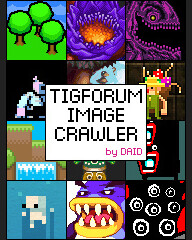Perfectionism
By: Derek Yu
On: March 20th, 2008
I’m a fan of Passage and Gravitation, Jason Rohrer‘s self-described “artgames,” but I know a lot of people find them irritating (to downright reprehensible!). Well, however you feel about the games, perhaps Jason’s new project, a monthly article for Escapist Magazine called “Game Design Sketchbook,” might convince you that the man at least has some interesting ideas!
In his inaugural design sketchbook, Jason brings up a concept that has spelled doom for many a promising game developer – perfectionism – and developed a game around it.
The game itself is fun and I think illustrates the concept pretty well – there were quite a few moments where I felt like I was obtaining some further insight into my own tendencies. However, it’s not a game that I would play too many times over. This is, perhaps, indicative of some sort of failure of Perfectionism as a game… I think if the production was not so sparse it would be more suited for repeated playthroughs.
As a design sketch I think it works pretty well, however.
(Thanks, Heather!)
-
djafwe
-
nullerator
-
Chris
-
Mischief Maker
-
PHeMoX
-
mio
-
Mischief Maker
-
BigBossSNK
-
Jorg
-
Corpus
-
Derek
-
mio
-
Mischief Maker
-
King-n
-
Fishy Boy
-
http://battlecity.looble.com Deceth
-
mio
-
Mischief Maker
-
ChevyRay
-
King-n
-
Jason Rohrer
-
mio
-
Tim
-
mio
-
konjak
-
DoctorAnus
-
Jason Rohrer
-
konjak
-
konjak
-
mio
-
http://www.chucknorris.com Eponymouse
-
Prio
-
King-n
-
BigBossSNK
-
mio
-
BigBossSNK
-
konjak
-
Prio


